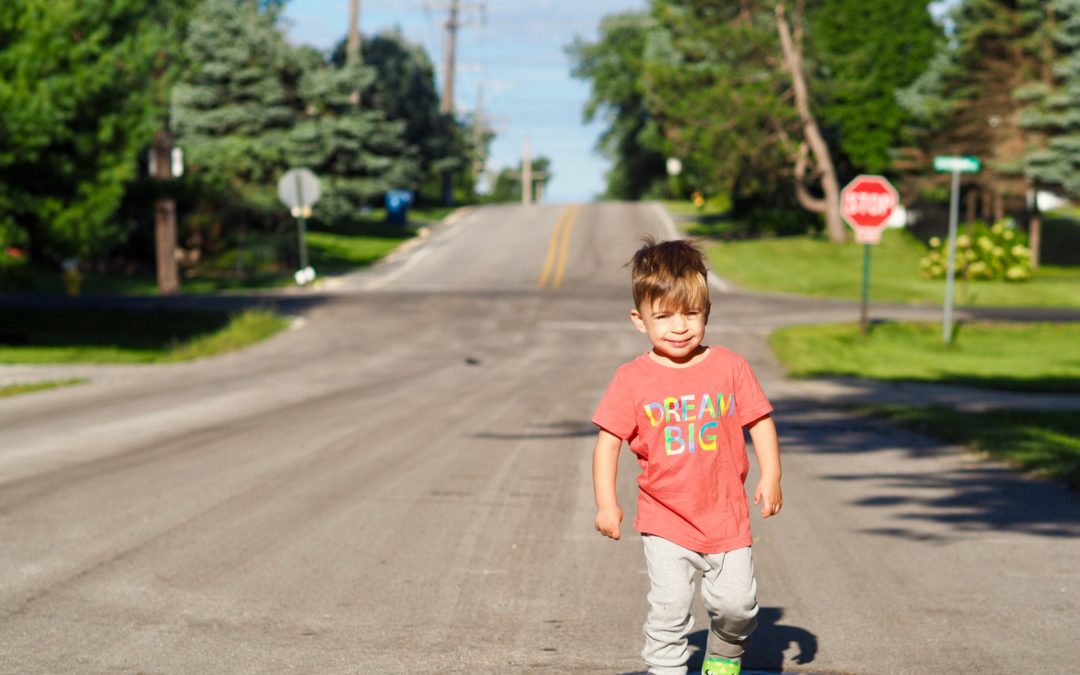I was 21 weeks pregnant.
“Hi, Molly. This is Dr. F. calling about your blood work.”
My heart started racing. I knew the doctor wouldn’t call unless he was concerned. I ran to the bathroom of the restaurant we were in – the only place I could think to go. My doctor told me that our baby had an increased risk of having Down’s Syndrome.
I broke down. I couldn’t conceptualize this scenario. I was frightened of what it would mean for my baby, my older son, and our whole family. I was ashamed that this possibility impacted me so strongly.
“If it were my wife, I’d recommend an amniocentesis,” Dr. F. said when I asked for advice.
Those words sealed the deal, we would have an amnio despite the risks. Of course, the amnio came back confirming that our baby did not have Down’s Syndrome. The rest of my pregnancy was healthy.
On a cool summer day, our sweet Oliver was born. He weighed just under 6 pounds and had a full head of gorgeous black hair. We nicknamed him “Ollie with the good hair.” We had some initial feeding difficulties, but, overall, Ollie was a happy, healthy baby.
At 6 months, however, it became clear that he was growing slower than the typical curve. So we saw specialists, including cardiology, gastroenterology, and nutrition, but there were no significant findings.
Our last stop was genetics. Ollie turned on the charm during his appointment. He was smiley and showed the doctor how he could say “mama.” We assumed the geneticist would confirm that Oliver was just small.
Then she told us that she suspected Ollie had a mild form of something called Cornelia de Lange Syndrome (CdLS). It felt like all the air left the room. I had spent the past several months vigorously researching possible explanations for Oliver’s slow growth, but had never heard of this Syndrome. I didn’t even know what questions to ask. How was I going to protect my son and give him everything he deserved if I couldn’t even come up with questions?
Our geneticist went on to tell us that most individuals with CdLS never walk, talk, or form relationships in the way that typical people do (spoiler alert: she was wrong). A deep sorrow took over. Many of the things we heard about CdLS didn’t make sense with what we had pictured for Ollie and, in many ways, didn’t make sense with what we already knew about Ollie. We were terrified and lost.
The next year was hard. Our pediatrician provided direction when we didn’t know where to go. We enrolled in early intervention, reached out to the Cornelia de Lange Syndrome Foundation, and joined the Facebook CdLS Discussion Board. We drove for hours to see experts. We became overwhelmed by the sheer number of appointments to coordinate. We battled with our insurance company to get approval for genetic testing.
When Ollie was 18 months, genetic testing finally confirmed our CdLS diagnosis, and we slowly gathered our footing. We developed routines to make doctors appointments a little easier, which almost always included donuts. We connected with the CdLS community, which became our information center and source of constant support and hope.
Our early intervention therapists gently showed us how to focus on Oliver rather than his diagnosis. They listened to our questions, helped us find every type of therapy we asked for, and even attended our first IEP meeting. Our doctors at Lurie Children’s Hospital and the Children’s Hospital of Philadelphia treated Oliver’s specific needs with special care.
Most importantly, Oliver showed us that most of our worries were unfounded. He learned to walk and run and jump and climb. He learned to dance and sing and speak (albeit it with some delays). He showed us his amazing ability to make friends with nearly anyone. He taught us a new, more open way to experience life.
We still worry about Ollie’s future. We still have specialists to see and IEPs to develop. We still can get so overwhelmed by doctors appointments or school evaluations that we break down and have to regroup. And we still don’t know exactly what life will look like for Oliver. But we know that we all have developed the strength to face challenges. We know that we have endless support from our CdLS family and doctors. We know that Oliver is amazing and will show us the way.
To all families who have recently received a diagnosis, please know that there is hope. There is a way forward. There is joy ahead. And there is a CdLS community that will help you along the way.

What genetic test did they run that confirmed the diagnosis?